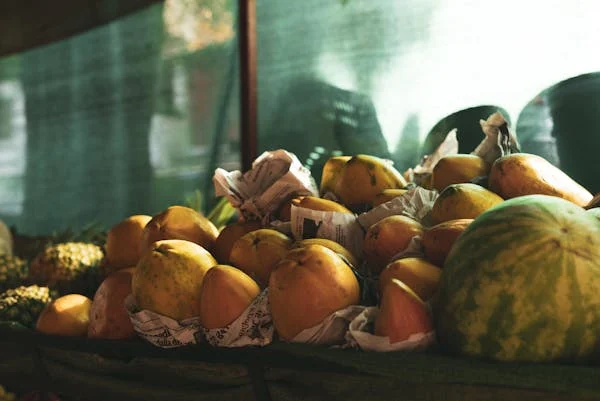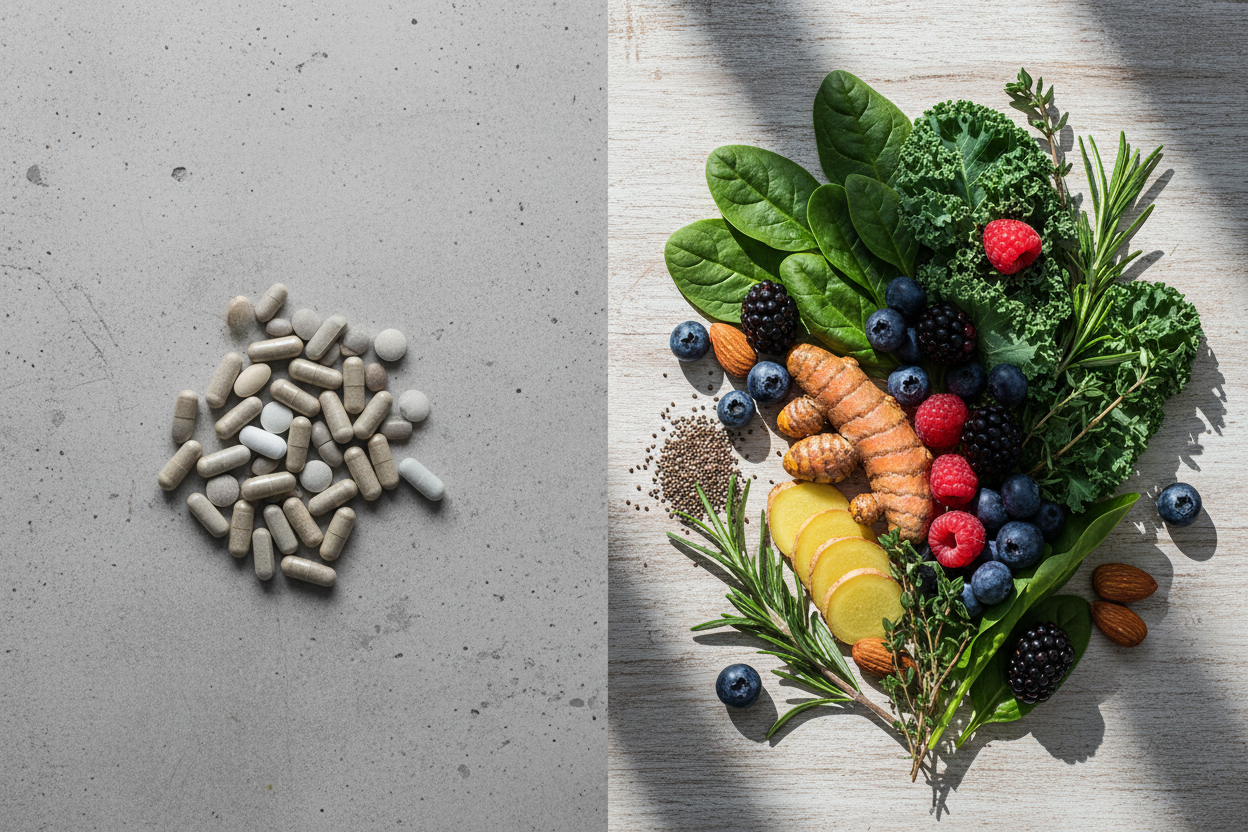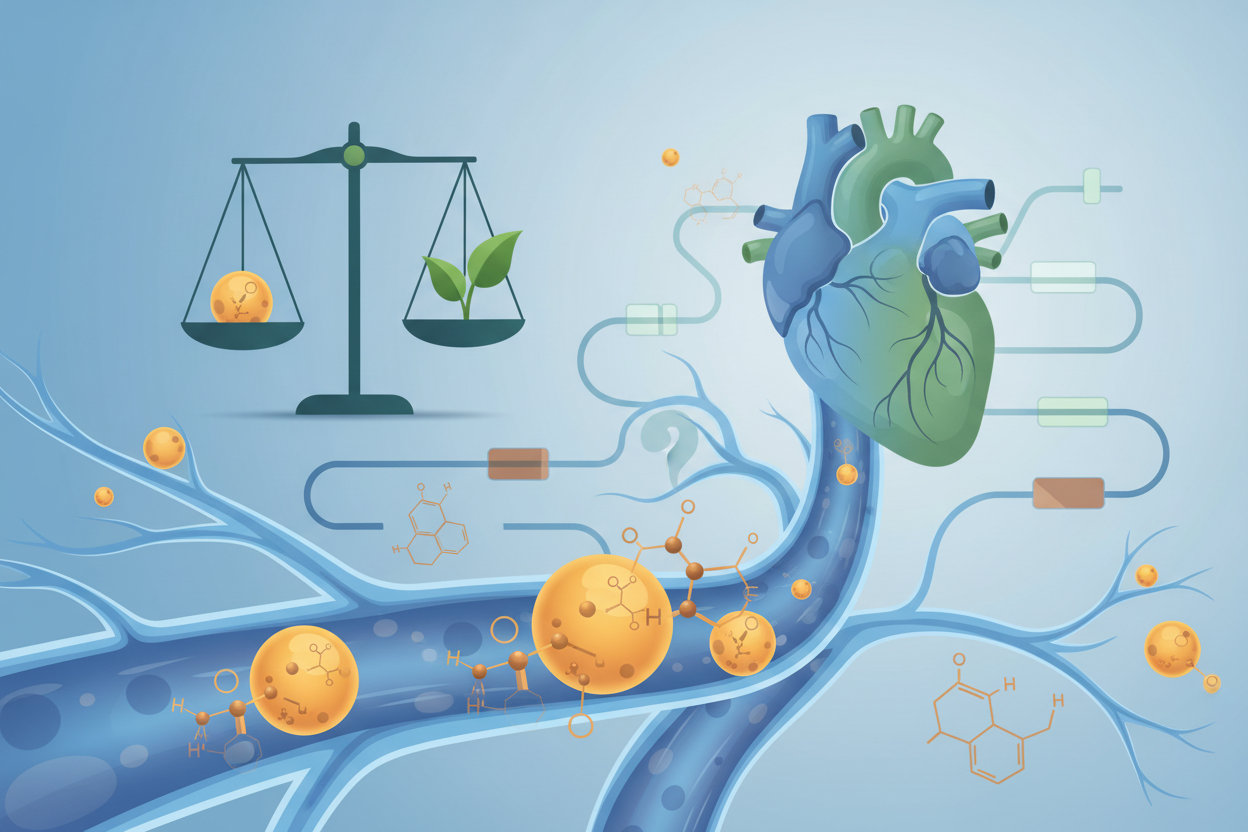
Why isn't exotic fruit the best choice in our winter? (or about the influence of deuterium, seasonality, mitochondrial energy load, and underlined fruit)
Thanks to today's retail chains, it may seem tempting to reach for fresh mango or pineapple in December as easily as in July. However, behind this "convenient" availability of exotic fruit lie hidden costs – from higher deuterium content through energy-intensive transport to artificially accelerated aging . In the cold months, when our metabolism adjusts to lower temperatures and less sunlight, these factors can pose an unwanted burden.
1. Deuterium and the energy balance of mitochondria
What is deuterium?
• Deuterium (^2H or D) is the "heavier" isotope of hydrogen with one proton and one neutron in the nucleus.
• This higher weight affects the physicochemical properties, especially bindings a efficiency of cellular energetics.
How does the body get rid of it?
• In an ideal case mitochondria during their metabolism (oxidation of nutrients) they produce metabolic water with a predominance of light hydrogen (^1H).
• Natural excretion deuterium requires metabolic pathways (e.g., the Krebs cycle, beta-oxidation of fats) to function optimally and to effectively separate and remove the heavier isotope.
• This process is not "free" – requires energy (ATP) and resources (enzymes, cofactors). If the intake of deuterium from food (and water) exceeds a certain threshold, it can result in lower ATP production and increased strain on cellular mechanisms.
Simply put: The more deuterium the body has to break down, the harder the cells have to work, and the less energy remains for other "routine" processes (regeneration, immunity, thermoregulation).
2. Exotic fruit and higher deuterium content
Why do tropical crops have more deuterium?
• The concentration of deuterium in nature varies geographically and depends on the climate. Tropical and subtropical regions may have a higher relative proportion of deuterium in water, soil, and air.
• Plants absorb this water and incorporate it into their fruits. Exotic fruit so it usually has relatively higher ratio heavy hydrogen atoms.
Impact on our winter metabolism
• In winter, we spend more time indoors, have less sunlight, and our metabolism operates in a "more economical mode."
• Excessive intake of deuterium (along with higher amounts of sugars and water from exotic fruit) can further burden mitochondria . When we add "heavier" isotopes to them, we increase the likelihood that the cellular ATP synthase will not function at 100%.
3. Artificially ripened fruits and their "ripening on the way"
Underlining due to transport
• Most exotic fruit that we find here in winter is harvested unripe (so-called "underlined"). This green crop travels thousands of kilometers before reaching our stores.
• During this journey usually does not occur to natural ripening in the sun. Instead, they are often used artificial procedures: controlled atmosphere, cooling, or even the use of ethylene (a gas that supports artificial ripening).
What is happening with the nutritional value?
• Such fruit may not have the same content of vitamins, enzymes, and phytochemicals as a crop ripening in natural tropical sunlight.
• Often poorer in micronutrients a aromatic substances. What looks appealing on the outside (colorful peel and soft pulp) may not internally correspond to the "vital tropical bomb" we would get directly in the country of origin.
4. Seasonality, sunlight, and natural rhythms
Circadian and seasonal tuning
• Evolutionarily We are accustomed to consuming a different type of food in winter – heartier, with a higher content of fats and proteins, root vegetables, fermented products, and possibly local fruits that can be stored through the winter (apples, pears).
• Exotic fruit with a high content of sugars and water is signal of summer , long days and higher intensity of sunlight – conditions when we are naturally more active, and our body thus burns sugars differently. In winter, however, we "switch" this body into a state that should conserve energy and focus on resistance to cold.
Less sun = less energy for repairs
• In winter, we have less UVB radiation (less vitamin D synthesis), as well as less infrared and visible light, which stimulates mitochondria to perform better.
• When we additionally burden the mitochondria by separating deuterium from exotic fruits and processing excess sugars, fatigue, weakened immunity, and reduced ability to adapt to cold may occur .
5. Energy Footprint and Ethical Dimension
Long journey, large carbon footprint
• Fruit that travels thousands of kilometers by air or sea cannot do without significant energy costs: fuel, cooling, storage.
• Although the nutritional value of exotic fruits is sometimes emphasized, we must ask ourselves whether it is for winter Central European body the real "cure," and whether the high environmental burden is worth it.
Instead, try...
• Local seasonal crops (apples, pears, pumpkins, root vegetables, sauerkraut) often contain more substances important for the cold season: minerals, vitamins, antioxidants.
• Fermented Products (fermented vegetables, pickles, kimchi) complement the intestinal microflora and strengthen immunity.
• High-quality animal fats , nuts, seeds – are a source of stable energy and also support "warmth from within."
6. How to approach exotic fruit in winter?
1. Measure, not customer
• You don't have to completely deny a piece of mango. However, consider quantity, frequency a combination with other foods.
• If the consumption of exotic fruit is rather occasional, the risk of excessive deuterium load and mitochondrial overload is reduced.
2. Read the signals of the body
• How do you feel after consuming these fruits? Do you experience bouts of fatigue, blood sugar fluctuations, or an irresistible craving for sweets?
• Keep track of your sleep quality and energy levels throughout the day.
3. Sources and processing
• If you already buy exotic fruit, give it a chance bio or fair trade variants where there is a greater chance of better treatment of crops and nature.
• Notice whether the fruits they do not ripen chemically (use of ethylene) and how long they are stored in the cold.
7. Final Summary
Exotic fruit is appealing to the eye, taste, and "exoticness." In winter however, our body needs to be taken into greater consideration gentle handling of energy , sufficient intake light protons (utilizable in mitochondria) and avoid unnecessary burden they represent excess sugars i higher deuterium content.
• Higher deuteration tropical crops force mitochondria to expend additional energy on the separation of deuterium.
• Underlining and artificial ripening reduce the taste and nutritional quality of the fruit, while the ecological footprint increases.
• Disrupted circadian rhythm (a lot of sugars and tropical fruits at a time when we hardly see the sun) can negatively affect our overall physiology and hormonal balance.
"Nothing happens by chance in nature. Exotic fruit grows in places where there is sun, UV, and warmth all year round. When we eat it in the Central European winter, we go against the tuning that evolution has equipped us with."
The message is simple: Let's return to local seasonality , let's support the natural harmony of our body with the seasons and keep in mind that deuterium depletion = survival. This does not mean completely excluding all exotic fruits, but choose it wisely and in smaller quantities. This way, we gain more energy, resistance to cold, and less strain on our mitochondria and the planet.



Leave a comment
This site is protected by hCaptcha and the hCaptcha Privacy Policy and Terms of Service apply.